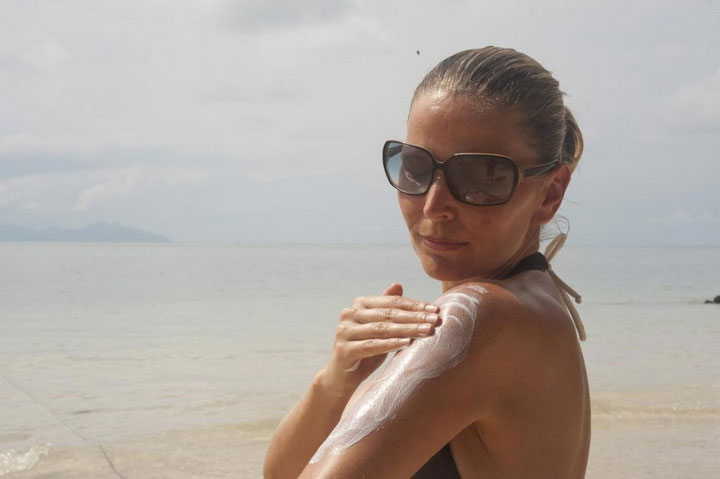Experts warn of risk from 'homemade' sunscreen
Type the keyword "homemade sunscreen" for immediate search for more than 67 million results - a terrible number shows that homemade sunscreens are very hot in the market. However, scientists warn consumers to stay away from homemade sunscreens.
A new study shows that homemade sunscreens may be ineffective and recommend users to stay away from these DIY products .
Quick search on Google with the phrase "homemade sunscreen" produces more than 67 million results. Many of them show instructions on how to homemade "natural", "simple" and "non-toxic" sunscreens .
The appeal of DIY sunscreen stems from many factors, such as lower costs and belief in a completely natural cream made from healthier selected ingredients that are healthier than the Sunscreen is manufactured industrially with a list of difficult-to-read chemical ingredients.
However, a new study warns us not to trust the sunscreen formulas found online.

Scientists warn consumers to stay away from homemade sunscreens.
The study comes from a group of researchers from the Trauma Research and Policy Center at the National Children's Hospital, in Columbus, OH and Brooks Medical University at North Florida University, Jacksonville. The research results are published in Health Communication.
Homemade sunscreen is a danger
The researchers found 95.2% of DIY sunscreen postings imply effective homemade products and 68.3% of DIY sunscreen promotional articles do not guarantee love. bridges against ultraviolet (UV). According to researchers' warnings, these form statements may be misleading, since the ingredients in those formulas are actually only against minimal UV radiation.
In the research paper, investigators say "social media has become a powerful tool in sharing health information, but it becomes dangerous when information is shared incorrectly. or full ". This is true for DIY sunscreen cases. The researchers explained, because experts do not test products of this type, they may not be resistant to UV rays.
"DIY sun protection products are potentially risky because they are not tested or tested for effectiveness like commercial sunscreens. When you do it yourself, you don't know if it is safe or effective." According to Professor Lara McKenzie, one of the authors of the study.
The US Centers for Disease Control and Prevention (CDC) notes that 'a history of sunburn, especially when you are young' may increase your risk of skin cancer. Therefore, it is important to apply sunscreen that has been tested and proven to be effective, from an early age, whenever exposure to harsh sun.
The American Academy of Dermatology recommends using broad-spectrum sunscreens - meaning protection against both UVA and UVB rays. At the same time the cream must also meet the standard of SPF 30 or higher and water proof.
In addition, adults should apply sunscreen around the skin for about 28 grams and should reapply every few hours when out in the sun, even more often when swimming or sweating.
- Why can sunscreen protect against sunshine?
- Choose and use sunscreen properly
- Interesting mysteries about sunscreen
- FDA claims: Sunscreen tablets are not as good as you think
- Most of us are making serious mistakes when using sunscreen
- The truth needs to know about sunscreen
- Video: Automatic sunscreen for seafarers
- Nearly three-quarters of sunscreens do not work as advertised
- Why can sunscreen protect against sunshine?
- Use sunscreen when your baby can prevent cancer later
- The first sunscreen in the world
- Why should you apply sunscreen even when flying?
- The secret to effective sunscreen for skin
- People who have to say 'no' to sunscreen
 13 causes of non-itchy rash
13 causes of non-itchy rash How the mouse with human ears changed the world?
How the mouse with human ears changed the world? The truth about 'fried rice syndrome!
The truth about 'fried rice syndrome! What is dental implant?
What is dental implant?